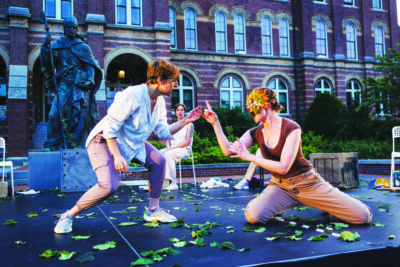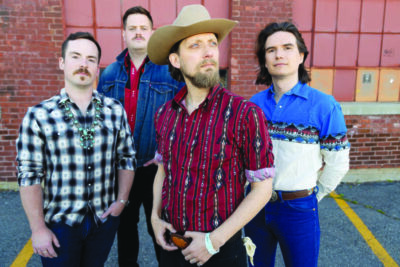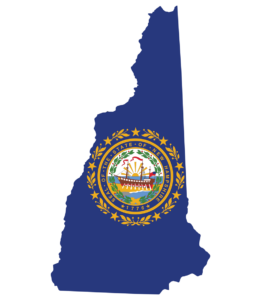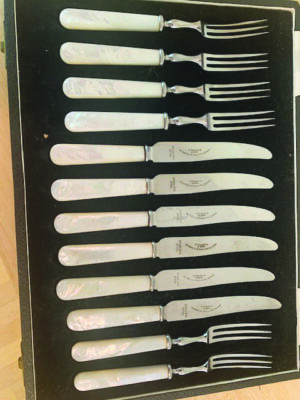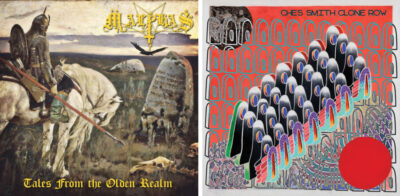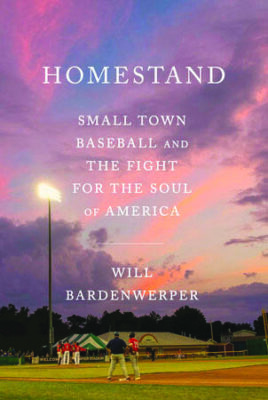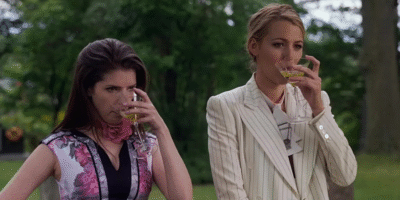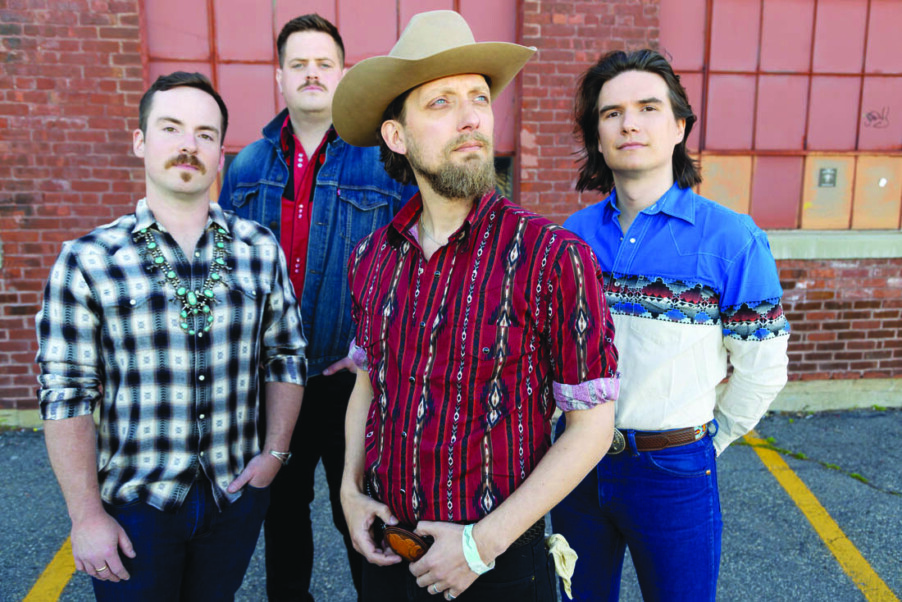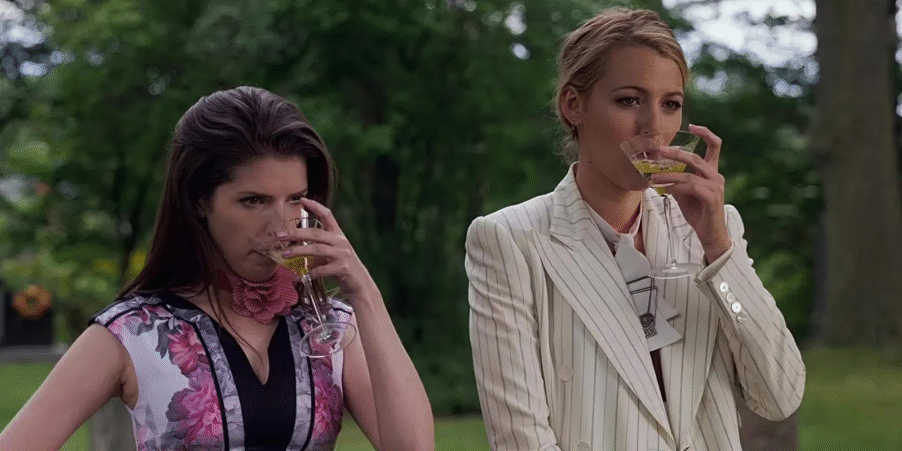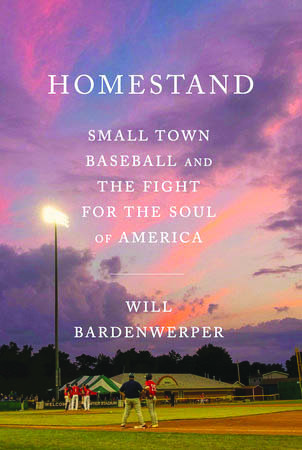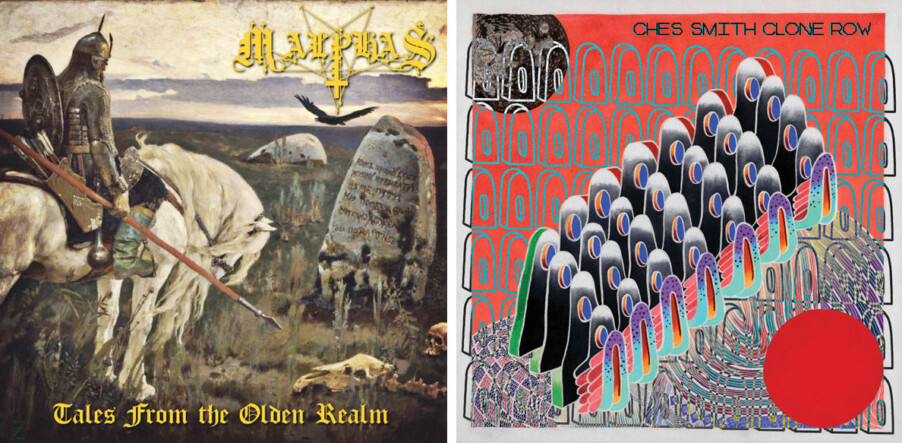Homestand, by Will Bardenwerper (Doubleday, 301 pages)
Batavia is a small city in western New York that most people have never heard of, even if they pass it on the New York Thruway on the way to or from a vacation. Like a lot of cities its size, Batavia is remarkable mostly for its reasonably priced homes and comforting sense of community, the latter of which is often derived from sports.
In Homestand, Will Bardenwerper examines what happens when that sense of community is under threat — in Batavia’s case, when the city loses its minor-league baseball team when the MLB decides to scale down its farm teams. It’s a topic that is close to the author’s heart, his warmest childhood memories involving backyard baseball with his brother, under his grandfather’s watch, and his adult experience of being part of a tightly knit Army battalion deployed to Iraq after 9/11.
When he returned home, Bardenwerper writes, “… after those many months living as a member of a small tribe who did everything together, I couldn’t wrap my head around what the ‘real’ world looked like when I returned, face-to-face, real human interactions increasingly giving way to soulless virtual contact.”
Increasingly concerned about how disconnected Americans are becoming from each other, he was also troubled by what was happening economically, with private equity becoming more of a player in everything from housing to baseball. When Major League Baseball restructured the minor leagues in 2021, cutting 40 teams, Bardenwerper saw it through this lens: What the loss of a team would mean for a place like Batavia, where community life was heavily invested in its beloved team, the Muckdogs.
Batavia, however, didn’t go gently into a baseball-less night. It got a new team to play in Dwyer Stadium, one composed of college players who each paid $1,500 for the opportunity to sharpen their skills while enjoying an enthusiastic, ready-made fan base. Bardenwerper decided to join their ranks in the name of journalism, buying a season ticket and traveling from his home in Pennsylvania to embed himself for a season in Muckdogmania.
“I wanted to find out for myself what we, as a country, risked losing, and whether there was any chance it might be saved,” he writes.
Much of the book is structured by games: the Muckdogs versus, say, the Elmira Pioneers, the Syracuse Salt Cats, the Utica Blue Sox and, my personal favorite, Jamestown Tarp Skunks, which honestly makes me want to move to Jamestown, New York, just because, well, Tarp Skunks.
It is an interesting scaffolding for the book, which works except for the fact that, like baseball itself, this narrative lends itself to plodding. Bardenwerper takes us deep into the life of this community and its inhabitants, sometimes deeper that the reader wants to go. We are warned of this at the start of the book, when a list of “Dramatis Personae” tells us that the people we are about to meet include octogenarian season ticket holder Dr. Ross Fanara; Bob Brinks, the popcorn maker at the Elmira stadium’s concessions stand; and Ernie Lawrence, “musician, hospice volunteer, rosary maker.”
Let’s just say that by the end of Homestand you will know a lot about small towns in the Empire State and their inhabitants. And also about why baseball is so important in small-town America.
Coming together to cheer on a team, Bardenwerper writes, makes everyone’s life a bit better at the moment. “The real magic,” he says, is not happening in the diamond, no matter how exciting a game may be, but “found in the bleachers, among the fans.”
This is a romanticized notion of fandom, to be sure; sometimes fans are falling from the stands, ripping balls out of a player’s mitt, throwing things on the field. But to know and love a community is to have spent time in it and gotten to know its people through shared experiences. As a local author (and fellow season ticket holder) that Bardenwerper got to know in the stands, Bill Kauffman, wrote of Batavia, “This is such an unlovely place, yet I love it with all my heart. To visitors, it is a charmless Thruway stop on the Rust Belt’s fringe; to me, it is the stuff of myth and poetry, and of life weighed on the human scale — the only measurement that counts.”
While Homestand is a love letter to community and to baseball, it has its villains: the money counters in MLB, private equity companies that profit at the expense of ordinary Americans, and, increasingly of concern to Bardenwerper, the extraordinarily well-paid professional ballplayer.
At one event in which children with disabilities were playing ball with the Muckdogs, causing everyone around to swell with emotion, Bardenwerper started thinking about how “just a few hundred miles to the southeast, the New York Yankees’ Gerrit Cole would soon go to work to earn his $36 million salary. On this day he would give up nine hits and four runs in a 6-3 loss to the Baltimore Orioles.”
He notes, however, that Cole’s salary was eclipsed by the Dodgers’ Shohei Ohtani, who had signed what was then the largest MLB contract: $700 million over 10 years. (Juan Soto of the New York Mets has since signed a deal that gives him $765 million over 15 years.)
Bardenwerper acknowledges that many fans aren’t troubled by athletes making money like this, but says he has come to believe that “the extreme economic inequality personified by Major League Baseball (and all professional sports) was corrosive to a healthy society — and, for me at least, was becoming an almost insurmountable obstacle to my desire to remain a fan.”
The more he gets to know the people of Batavia and the devoted minor-league baseball fans in nearby cities —in Elmira, a man now in his 90s has been sitting in the same seat since 1974 — the more Bardenwerper is troubled by the cost-cutting decisions made by wealthy people who live far away. “Baseball,” he says, “has already begun to resemble yet another extractive industry where dollars are transferred from small towns to big-city owners and investors.”
In some ways, Homeland is a follow-up dirge to a book that Bill Kauffman wrote about Batavia in 2003, Dispatches from the Muckdog Gazette: A Mostly Affectionate Account of a Small Town’s Fight to Survive. For a small, unremarkable city, Batavia gets remarked upon a lot. It might yet survive, as might baseball.
The Muckdogs of 2022 can be quite a long season for the casual reader, but Homestand pays off for those who love baseball — and aren’t prone to fidgeting when the game runs long. B+ —Jennifer Graham
